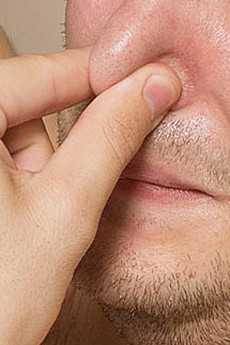Chronic foul breath, often known as oral malodour, is referred to as halitosis. Halitosis is defined as a persistent irritating or unpleasant mouth odor.
It's a common but curable problem, so anyone with foul breath shouldn't be afraid to visit a dentist.
An highly foul mouth smell can be humiliating and demoralizing, resulting in poor self-confidence and an uncomfortable social life.
Because some individuals find it difficult to sit near to someone who has an objectionable mouth smell, halitosis can have an impact on marital and other personal relationships. Halitosis is thought to afflict one out of every four persons on the planet. Diagnosis
Halitosis can be diagnosed by both the person and the dentist. However, it might be difficult for a person to recognize that he or she has halitosis.
Even yet, a person can diagnose himself in a variety of ways. One technique is to ask close friends and family members whether your mouth smells unpleasant.
Because a person becomes accustomed to his or her own breath, halitosis may go unnoticed.
As a result, getting a second opinion on your tongue odor is crucial. A home testing kit, which can be purchased on the pharmaceutical market, is another option.
The kit consists of strips that change color in the mouth to illustrate halitosis caused by the presence of bacteria. The kit consists of strips that change color in the mouth to simulate halitosis, which is caused by the presence of significant numbers of germs.
The wrist test may also be used to self-diagnose halitosis. Because the wrist and back of the hand seldom come into contact with surfaces, the person can lick the wrist and back of the palm, wait 10 seconds, and then smell the licked area.
The licked region would smell bad if there was halitosis present.
Dentists can use a device called a halimeter to detect the quantity of volatile sulphur compounds in the mouth in addition to self-diagnosis.
In the 1990s, the Halimeter was launched as a supplement to human evaluation techniques for diagnosing halitosis. A person suffering from halitosis, or chronic foul breath, may also have a stale taste and a white film on their tongue.
Causes
Poor dental hygiene practices, cavities, gum disease, fractured fillings, and filthy dentures are only a few of the causes of halitosis.
High-protein, low-carbohydrate diets, acidic meals, sweets, onions, coffee, alcohol, and garlic, as well as smoke, all have a role in halitosis.
Let me be clear: dietary issues may or may not be the cause of foul breath. Instead, poor digestion, constipation, or intestinal issues can cause the aroma of previously consumed food to reemerge in the mouth, resulting in foul breath.
Sinusitis, diabetes, malignancies, liver failure, chronic acid reflux, renal difficulties, and xerostomia (dry mouth) are some of the diseases that can produce foul breath. As a result, poor breath can also signal the presence of underlying health issues.
Some people, on the other hand, are too concerned about halitosis, even if they have little or no mouth smell.
Halitophobia is the dread of having unpleasant breath (fear of halitosis). Obsessive mouth-cleaning might be a symptom of halitophobia.
Treatment
The mouth is the source of the majority of halitosis instances, thus everyone should be careful with their toothbrushing and mouth rinse practices.
Brushing your teeth and tongue thoroughly should be done first thing in the morning and last thing before going to bed at night.
You may read about the importance of cleaning your teeth before going to bed in my previous blog. It first appeared on page 13 of the Daily Graphic on April 27, 2022.
Bad breath is caused by large germs accumulating on the tongue and in between the teeth. Dental flossing, in addition to brushing and rinsing the mouth, is essential.
A dental floss is a strand of thin filaments used to clean between the teeth and remove food particles and plaque.
Flossing helps to preserve dental health by removing particles that the toothbrush cannot remove.
If a person's foul breath does not improve, he or she should seek treatment from a trained and certified dentist or dental surgeon.
There should be no shame in obtaining medical assistance to treat halitosis. Remember that persistent halitosis (bad breath that doesn't go away despite brushing, flossing, and rinsing) might indicate an underlying health concern.
 blogpay
blogpay























